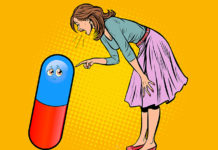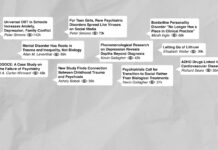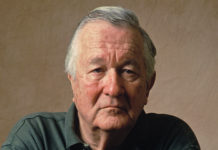A Doctor Cures His Bipolar Diagnosis Without Psychiatry: Review of ‘I’
I details what happened to Jeffrey Fidel when he quit psychiatric drugs and embraced an alternative, non-medical healing approach — a set of philosophical and spiritual teachings known as the Tao Te Ching and Hua Hu Ching.
Functional Medicine: My Path Out of Psychiatry
My blood work indicated a host of issues that had been lurking under the surface of my “psychiatric diagnoses” for years. I’d seen various mental health professionals and none had recommended these types of tests, or stopped to think about any underlying factors, aside from the well-known “serotonin myth.”
What Does Social Justice Really Mean for Psychologists?
Without clarity and consensus around what social justice means, psychologists risk perpetuating injustices that undermine their stated mission.
The Pill Shaming Phenomenon: What’s It Really About?
At best, the underpinnings of the ‘pill shaming’ accusation are misguided. At worst, they represent a concerted effort on the part of the current power structure to use us against ourselves (and they don’t need any more help). It’s the same old story packaged up as if it were something new and ultra woke.
The WHO Calls for Radical Change in Global Mental Health
The World Health Organization newly published guidance for community mental health urges an end to forced treatment and the adoption of person-centered and rights-based services.
Mad in America’s 10 Most Popular Articles in 2023
A roundup of Mad in America's most read blogs and personal stories of 2023 as chosen by our readers.
John Read and Jeffrey Masson – Biological Psychiatry and the Mass Murder of “Schizophrenics”
On the Mad in America podcast this week, we hear from the co-authors of a paper published in the journal Ethical Human Psychology and...
Healthy Planet/Healthy Mind with Zach Bush, MD
Business as usual — big farming, big pharma and conventional healthcare — is threatening our planet and our very ability to survive as a species. Planetary and human health are at a tipping point. Solutions informed by the science of environmental health, epigenetics and the microbiome, are elegantly simple, but their impact is profound.
UN Report: Involuntary Psychiatric Interventions “May Well Amount to Torture”
Such interventions, the report says, "generally involve highly discriminatory and coercive attempts at controlling or 'correcting' the victim’s personality, behaviour or choices and almost always inflict severe pain or suffering."
A Revolution Wobbles: Will Norway’s “Medication-Free” Hospital Survive?
We interview Ole Andreas Underland, Director of the Hurdalsjøen Recovery Center in Norway which provides “medication-free” care for those who want such treatment or who want to taper from their psychiatric drugs. Ole Andreas explains why the success of this pioneering approach might threaten its future.
Withdrawal from Mood Stabilizers
A review of the scientific literature for withdrawal from mood stabilizers: mechanism of action, animal studies, withdrawal symptoms, discontinuation success rates, and relapse rates related to tapering speeds.
Music Aids Mental Health: Science Shows Why
What can science tell us about music’s impact on our cognition and on our mood, on our capacity for empathy, and our sense of connection with others? How does it change the brain? How does it change us?
No More Tears: In Memory of Kathleen Fliller
My friend Kathleen Fliller ended her life last month. She had written a chronicle of her struggles with psychiatric drug withdrawal and akathisia, which she asked me to share with Mad In America to be published in hopes that it might help others not feel so alone.
A Peek Inside the Modern Asylum
The psychiatric hospital of today is a panopticon, a modern prison for the daring mind and for weird behavior. I was once inside and thus, am inviting you to have a look. I will take your hand, and encourage you to join me, on an exploration of the inside of the psychiatric institution. We'll have a small peek, but in reality, it is much more distressing for the one who is being observed.
William Styron: His Struggles with Psychiatry and Its Pills
Author William Styron is often remembered for speaking about depression as an illness. But a review of his life reveals that psychiatric drugs may have triggered and even worsened his depressive episodes.
Withdrawal from ADHD Medications
This guide to the scientific literature on withdrawal from ADHD drugs provides a review of animal studies, withdrawal syndromes,
and possible tapering protocols.
Haloperidol is Neurotoxic
This is the headline of an editorial in the most recent edition of Current Psychiatry. It is written by a prominent psychiatric researcher. Read more on why I am not so comfortable with his suggested solution.
How “Safe Messaging” Gaslights Suicidal People
Suicide prevention constructs a reality in which the problems of suicide lie within suicidal people. Sanity is constructed around wanting to live, insanity around wanting to die. Within this paradigm, the suicidal person can never be trusted. They are fragile, vulnerable, demanding protection, surveillance, and management.
Mental Health Services Turned My Daughter’s Crisis into a Way of Life
My world turned upside down when my daughter nearly died from a serious suicide attempt. After several years as her caretaker I began to wonder: What can we do to change the way our mental health services are organized so they won't turn a crisis into a way of life for already distressed and vulnerable people?
Hegemonic Sanity and Suicide
The “good” suicide attempt survivor wakes up in a hospital bed bathed in beautiful natural light, surrounded by the people who love them most, and they realize that their thinking was flawed and all those unsolvable problems can actually be solved if they are just compliant with medication and therapy. And then there's the “bad” suicide attempter who is angry that they lived, who challenges the status quo.
Chemically Imbalanced: Joanna Moncrieff on the Making and Unmaking of the Serotonin Myth
Joanna Moncrieff joins Robert Whitaker to talk about her latest book, titled Chemically Imbalanced: The Making and Unmaking of the Serotonin Myth. They discuss the serotonin story and the fact that there is no good evidence that a serotonergic deficiency is a primary cause of depression.
Anders Sørensen – Tackling Psychiatric Drug Withdrawal Through Research and in Practice
Anders Sørenson is a Danish clinical psychologist with a special interest in psychiatric drug withdrawal. He has undertaken research which assesses the state of guidance on psychiatric drug withdrawal and paid close attention to tapering methods with the aim of identifying approaches which might make withdrawal more tolerable for people.
“Holy Shit!” Psychiatry’s Cognitive Dissonance on Display
Even those who would seek to reform the profession of psychiatry cannot confront the reality that exists in the research literature
Benzodiazepines Linked to Treatment Resistant Depression
Prior use of benzodiazepines, such as Xanax, Librium, or Ativan, may increase the risk of treatment-resistant depression (TRD), according to a new study published in The Journal of Nervous and Mental Disease.
The FDA Is Hiding Reports Linking Psych Drugs to Homicides
In my wildest dreams, I could never have imagined being drawn into a story of intrigue involving my own government’s efforts to hide, from the public, reports of psychiatric drugs associated with cases of murder, including homicides committed by youth on the drugs. But that is precisely the intrigue I now find myself enmeshed in.































